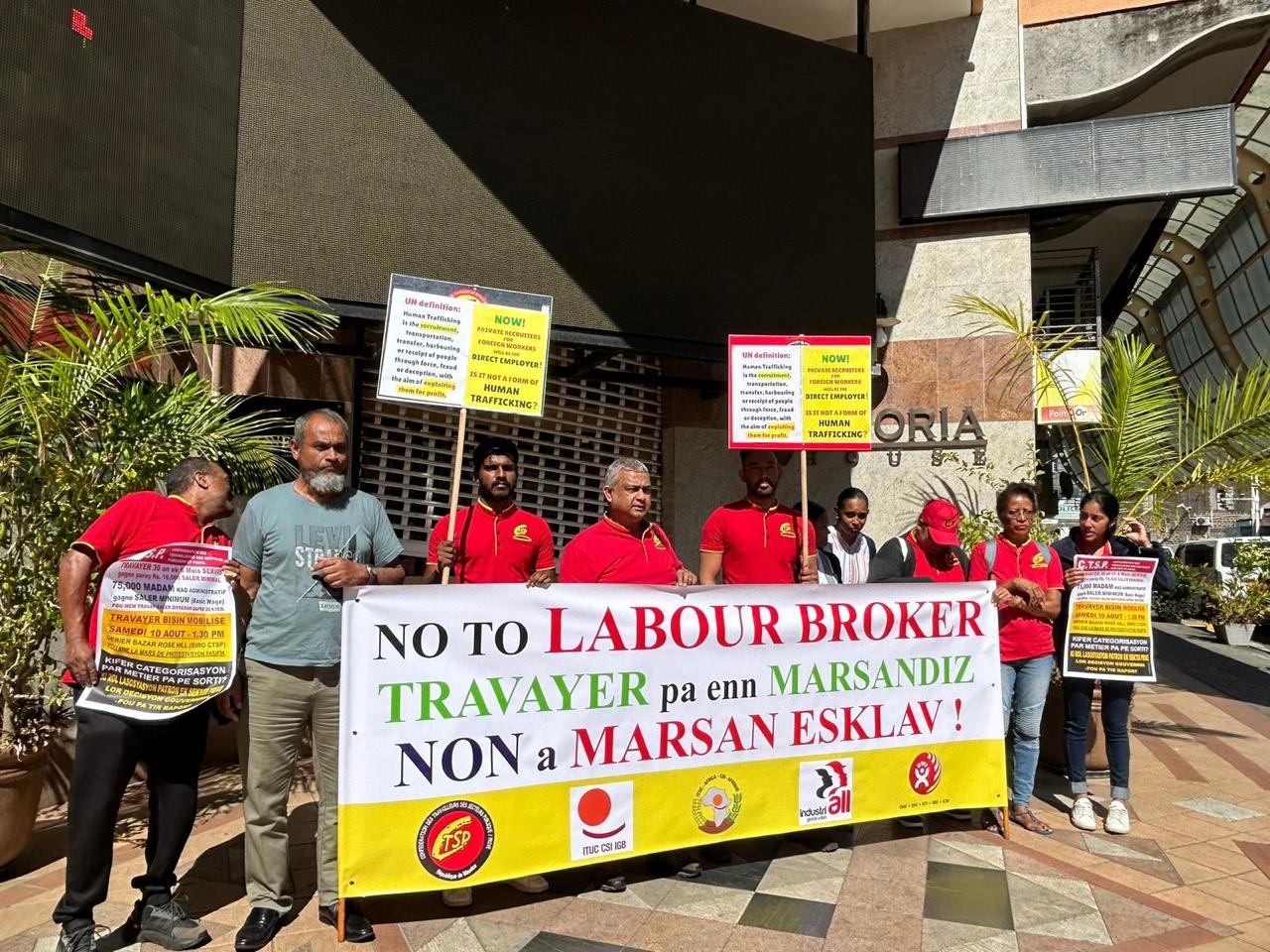31 July, 2024On 25 July, the Mauritius Parliament amended the Private Recruitment Agencies Act to include “labour contractors,” allowing them to employ migrant workers on behalf of businesses. Unions argue that these amendments will further expose migrant workers to exploitation and precarious working conditions.
In Mauritius, many migrant workers are trapped in debt bound to agents, repaying loans taken to cover exorbitant recruitment fees. Others endure appalling living conditions and face unfair labour practices and intimidation from employers, exposing them to forced labour.
Most migrant workers in Mauritius are employed in manufacturing, including textile and garment industries. They come from countries such as Bangladesh, India, Madagascar, China, Sri Lanka, and Nepal.
IndustriALL affiliate, the Confederation des Travailleurs des Secteurs Publique et Prive (CTSP), is actively campaigning against the amendments. The changes would exempt employers from contributing to migrant workers' retirement funds and social protection schemes. In protest, the union plans to picket outside the Ministry of Labour offices on 10 August, marking the United Nations World Day Against Trafficking in Persons.
Mauritian laws stipulate that migrant workers should enjoy the same terms and conditions of service as local workers. This includes protection under the Workers’ Rights Act (2019), which safeguards against discrimination based on gender, race, nationality, and sexual orientation.
The Employment Relations Act (2008) guarantees freedom of association, the right to organize, and collective bargaining. Additional laws protect workers' occupational health and safety rights.
According to the CTSP, the amendments undermine existing collective bargaining agreements and propose to reduce migrant workers' salaries by up to 20 per cent for work of equal value.
“Labour contractors will not contribute anything towards social protection and pensions, yet they will enjoy guaranteed cheap labour. Unions are against models that rely on cheap labour to the detriment of migrant workers,”
said Reeaz Chuttoo, CTSP president.
Paule France Ndessomin, IndustriALL regional secretary for Sub Saharan Africa, emphasised:
“There is a need for social dialogue between the government, unions, and other stakeholders on the implications of these amendments. Laws should strengthen existing legislation, not undermine it. It is commendable that the CTSP has consistently protected workers’ rights in Mauritius through the Migrant Resource Centre, which the union operates at its office building.”


